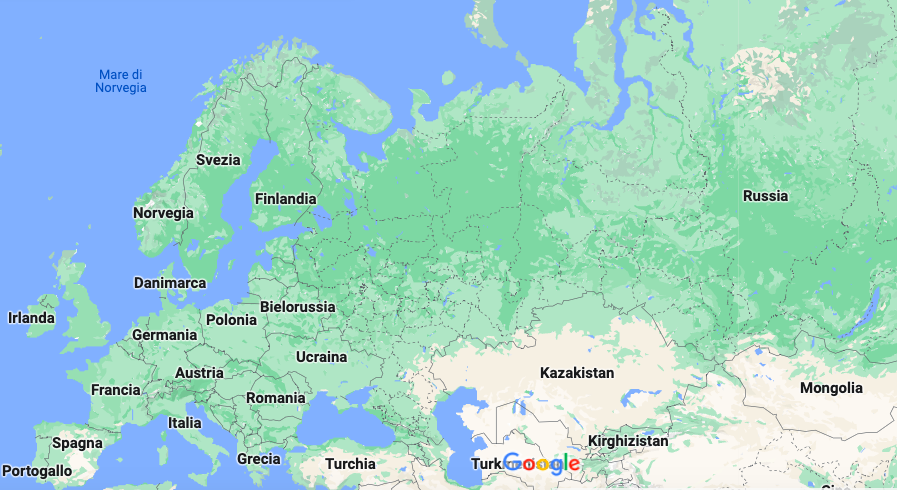The incredible shrinking Germans
Dopo la pausa per le feste natalizie tornano anche gli aggiornamento da Potsdamer Platz. Qui di seguito pubblico una sintesi di un mio articolo in inglese per la rivista Longitude sull'invecchiamento della popolazione in Germania. Longitude è una rivista internazionale di politica interamente in inglese ed è acquistabile (o ordinabile) in tutte le migliori librerie. Altrimenti si può sempre leggere su ipad scaricando l'applicazione Longitude.
The world population now exceeds seven billion, but in
Europe population growth remains very low. And within Europe it is Germany
which has one of the lowest growth
rates. The relative figures released last
year by the Ministry for Internal Affairs were already worrying. Last October,
the Federal Statistics Office announced that the population of Germany would
fall by at least ten million by 2060. It is evident that the future demographic
of the German Federal Republic will be one of the most important subjects for
public discussion in the next few years. German society is gradually and
inexorably diminishing and ageing. Germany has a birth rate which is among the
lowest in the world, as we will see only
the Japanese do worse than the Germans.
The question that now needs to be
asked is this: Is it possible for an
economy which is Europe’s guide and model to have such a low birth rate? What
future does the German population have? Is Germany self-destructing, as Thilo
Sarrazin wrote, maybe prophetically, in 2010? Today the German Federal Republic
is a solid and robust social market economy, but its economic supremacy is not
destined to last long if it is denied the possibility of generational
change.
The Berlin Government, naturally, is
trying to launch a strategy to counter a negative and decidedly alarming trend.
Last year it set up a government think-tank on
demographics at the Ministry of Internal Affairs
with the intention of developing ideas and projects and to advise the
government on what it could do to improve matters. Then, last October we had the first forum to
present the government’s strategy for dealing
with demographic change. The slogan was “Jedes
Alter zählt”.
Behind the government’s action plan
is the conviction that the dramatic demographic trend in Germany can only be
reversed by means of real synergy between the State and the people and that
they must cooperate with one another.
Anyway, the government still does not seem to have very clear concrete
ideas on how to act. It is quite likely that it will be able to be more precise
in 2013. On 9
and 10
January 2013, in fact, the second forum on demography, the so-called Berliner demographics Forum will be held. In this forum young
academics and representatives of the generation of the eighties year will discuss problems related
to demographic change. The
thematic spectrum has three keyword concepts: Generations, learning and well-being. At the centre of the debate is the problem
of the difficulty for young academics of forming a
family due to temporary contracts.
According to a recent study by the
Deutsches Institut für Wirtschaftsforum (DIW)
about 40 percent of women working in academia have no children.
The last congress of the CDU, the party of Chancellor Angela Merkel, addressed the demographic problem. In the final document of the Hannover congress which took place on
4 and 5 December last, it is recognized that about half of today’s children will probably reach
a hundred years, but at the same time there will be fewer births. The
intention of the CDU is to
improve working conditions in order to ensure competitiveness and innovation, which are the keywords of the German economic and social model, even through
the older generation. Older people, in fact, often have superior experience and skills. It has then
almost accepted that the demographic
trend is, for the moment, unstoppable and so rather
than focus on increasing new births it aims to
make the existing ruling class more competitive. The challenge that the CDU wants to launch is to try to combine experience with
innovation so that Germany remains the country known worldwide for its innovative ideas. All this without neglecting family policy. How this policy should be developed and articulated, considered
the costs which already incurring, remains a mystery. The position of the CDU seems more aimed at
containment and scaling
down the damage that aging could
bring in the immediate future rather than at a solution for the medium to long term.
Demographic change is, for Germany, one of the biggest challenges in the
future. However, again, the ruling and political classes of the Federal
Republic do not really know how to deal with it. It is hoped that the
forthcoming political election will bring new ideas. For the time being Germany remains an economic giant with a highly
uncertain future.
twitter @uvillanilubelli




Commenti
Posta un commento